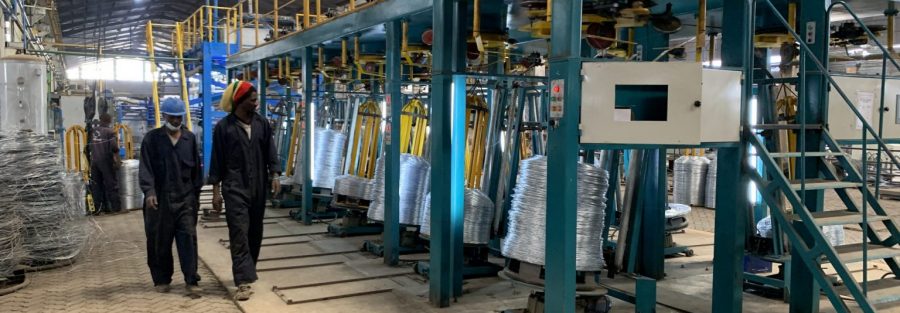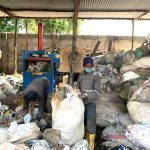A Thika-based manufacturer who deals with an array of wire products like the Kifaru galvanised wire has cut out its niche by coming up with a new programme that will empower residents from Kiambu County and its environs to start manufacturing their own chain links. The multibillion shillings Blue Nile Group that has been in existence in Kenya since 2008 will be seeking to support women and youth by giving them chain link making machines.
The model will be that the beneficiaries of the programme will be buying wire at reasonable prices from Blue Nile and will then be using the wire to make chain link for their benefit. Presently, there are already 50-70 people working in the production of chain links within Kenya, a number that Blue Nile aims at increasing in the coming year. The company has also been driven by the impact of the Covid-19 pandemic on Kenyans and their idea is to use this programme as an economic recovery strategy for the affected Kenyans.
This is projected to solve the challenge of having to import wire from other countries and instead build local manufacturing capacity, create employment opportunities and make wire products more affordable. This will supplement the government’s efforts in the Big Four Agenda on promoting manufacturing as well as the Buy Kenya Build Kenya initiative.
Joseph Chege, the company spokesperson says that Blue Nile is the only manufacturer of hot dipped galvanized wire with a montly production capacity of more than 3,000 tonnes. He says that the company intends to dwell more on the social impact aspect. To date, Blue Nile has created more than 700 employment opportunities at the factory and more than 300 indirect jobs.
“Ours is a story of not only building for Kenya but also building Kenyans. We believe in coming up with the most modern technology in the built industry, and we also believe in empowering Kenyans to produce using similar technologies,” he says. “We are also continuously empowering staff with training and experience with an aim to transferring skills to the highest number of people.”
The Thika-based company has also established an affluent treating plant that recycles water and treats it for use back at the factory as well as distributing it to the neighboring homesteads. To combat the relatively high cost of power and save on power usage, Blue Nile is investing in solar energy that it hopes will not only benefit its production, but will also in future be contributed to the national grid.
To build on its sustainability, the company is expanding to the rest of the East Africa Community where it aims at proliferating its products to Uganda, Tanzania, Burundi and Sudan. This will be through exporting its wire products, turbo mechanically treated bars, billet and galvanized wire. “We also aim at boosting the country’s foreign exchange further by exploring regional markets in the spirit of the free trade areas collaboration as well as distributing unique and quality products like our Kifaru products that come in multiple colours of choice with each having a warranty of 10-15 years,” Chege says.
According to the Government of Kenya, manufacturing is a key sector in the economic development, in both its contribution to national output and exports, and for job creation. Key targets and specific goals in this sector have been set to steer industrial growth. These include the development of Special Economic Zones, industrial parks and clusters and niche products.
There is a wide range of direct and joint-investment opportunities in the manufacturing sector including agro-processing, garments, the assembly of automotive components and electronics, plastics, paper, chemicals, pharmaceuticals, metals and engineering products for domestic and export markets. Kenya also aims to become very investor friendly in order to achieve its Vision 2030 blue print.



